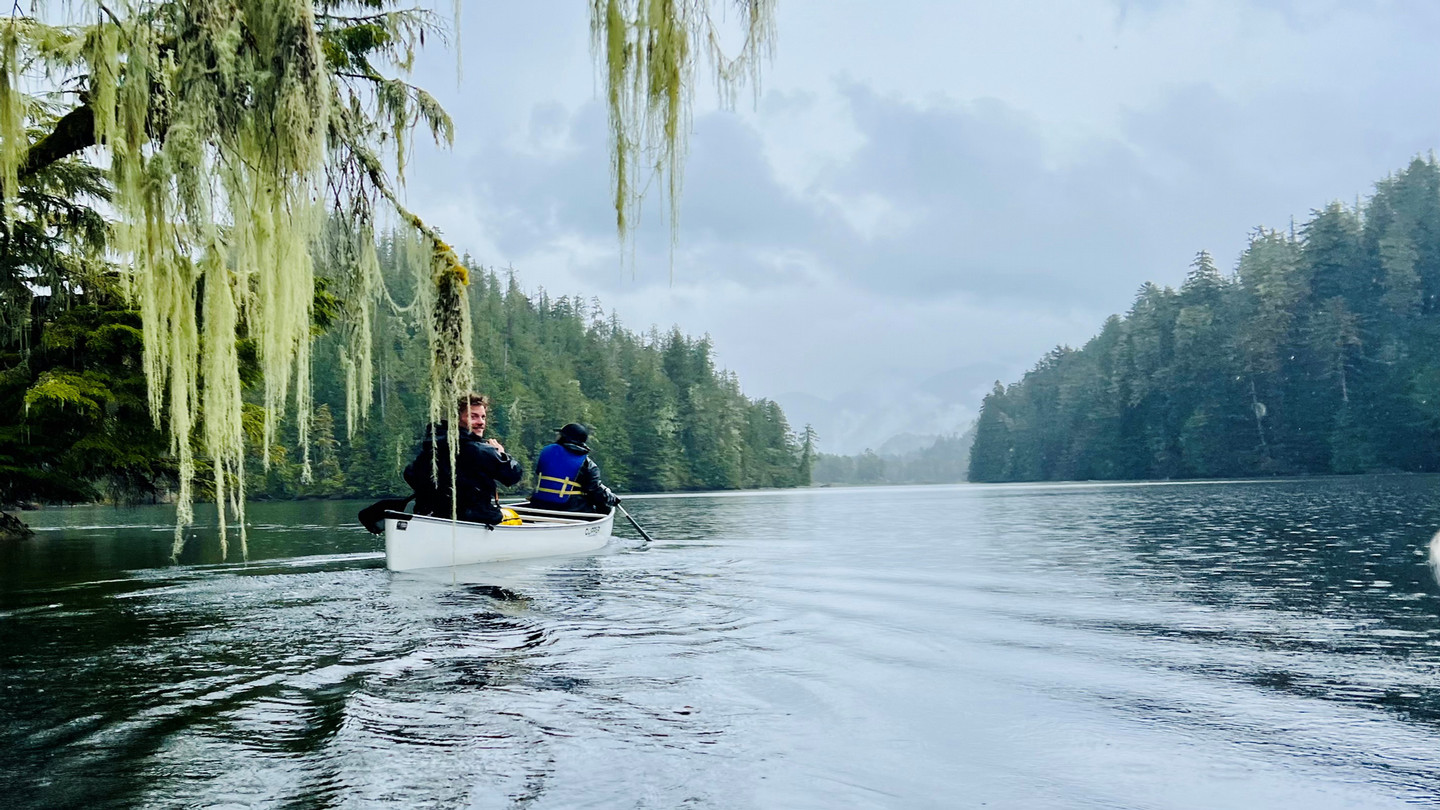Koeye field school

Dates: May 8th - May 14th, 2026
Are you interested in immersing yourself in an intensive, experiential, field-based, and culturally-grounded field school in coastal BC? The Indigenous Knowledge, Science, and Resource Management Field School (a.k.a. “The University of Koeye”) is based in the remote Koeye River Lodge. Students
will travel independently to and from Port Hardy, the port from and to which the water taxi departs and returns.
The class is offered in partnership with the QQS Projects Society, a Heiltsuk First Nation not-for-profit organization that works in service of Youth, Culture, and Environment.
Eligibility
We expect many more applicants than the ~15-20 positions available. Accordingly, we list the following eligibility information:
- Students must have third or fourth year standing in Geography (but see below)
- This field school is designed primarily as a capstone experience for senior Geography students, but the selection committee will consider other applicants at UVic and beyond based on a variety of factors, including course, life, and work experience. We are particularly interested in students from coastal Indigenous communities in the area (and offer fellowships to eligible applicants; please see below).
- This field school will involve outdoor activities that will at times be physically demanding, such as hiking over rough or steep terrain and canoeing. Applicants must mention if they have any accessibility needs that may affect their ability to participate in these activities, so that potential accommodations can be discussed.
- Finally, we ask applicants to answer several questions, which allows us to assess the fit of each applicant and what they could contribute to the learning and community-engaged experience.
How to Apply
Applications are now closed, any questions can be sent to geography@uvic.ca
Course Overview
Geography 453 – Field Studies in Coastal and Marine Resources
Pre-requisite: GEOG 353 or equivalent
Instructor: Chris Darimont (UVic) and Jessie Housty (QQS Projects Society)
May 8th – 14th, 2026
Overview: This land-based educational experience weaves together Indigenous Knowledge and science in the context of natural resource use and management. Designed to be highly experiential, the course gives students time and opportunities in the Koeye watershed to interact with its natural features as well as with Knowledge Holders, scientists, and natural resource managers.
KEY THEMES: Natural resource use and management, Indigenous Knowledge, governance, science, wildlife, plants.
The course is worth 1.5 credits. Successful applicants will be registered in this course through special registration by the Department of Geography (students will not register themselves). Successful applicants from other institutions must register at UVic as a visiting student, and work with their program advisors at home institutions towards transferring credit.
VC: Declan McLennan
Fees and Financial Support
Students pay regular UVic tuition plus field school fees. Field school fees can be paid by cheque, money order or cash only. Cheques and money orders should be made payable to the University of Victoria.
Payment can be dropped off at the geography main office (David Turpin B203) or mailed (cheques and money orders only; do not mail cash).
Field school fees:
• $1,500 due within one week (March 12, 2026) of notice of acceptance (March 05, 2026)
Field school fees include:
• Room & board at the Koeye River Lodge (include Koeye staff)
• Water taxi charters to and from Port Hardy (students responsible for travel to and from Port Hardy)
• Teaching- and research-related equipment and materials
• Compensation (and travel expenses) for guest lecturers and knowledge holders
Field school fees do not include:
• Tuition
• Travel to and from Port Hardy, which might include overnight accommodation
• Other expenses such as any personal gear (e.g. hiking shoes) required for the course.
This field school has been directly and substantially subsidized by the Department of Geography. No application is necessary to receive this support, as it has already been built into the field school fees.
Edwin Martin Field School Award
Indigenous students may apply for the Edward Martin Field School Award, a special fund set up for this field school. Edward Martin was a Heiltsuk Elder and Knowledge Holder who taught youth at the Koeye River summer camps.
The fellowship application can be found here. Both applications are due February 26, 2026.
